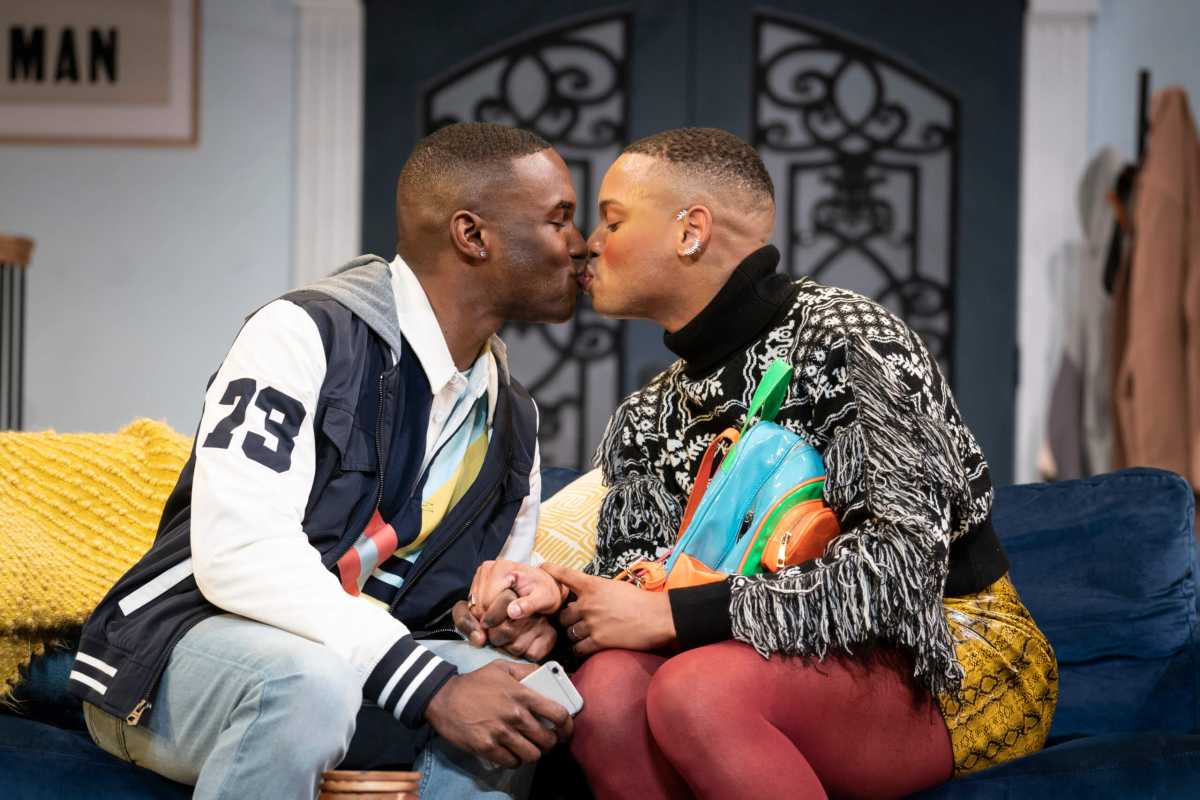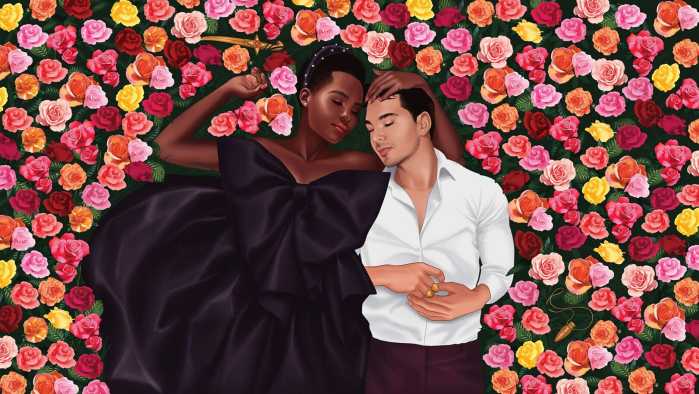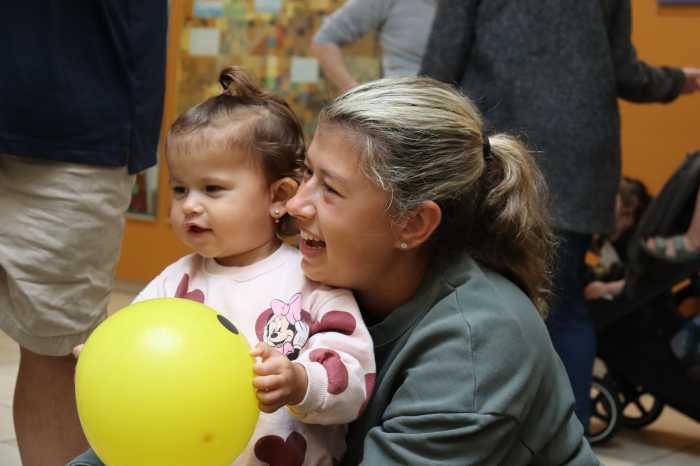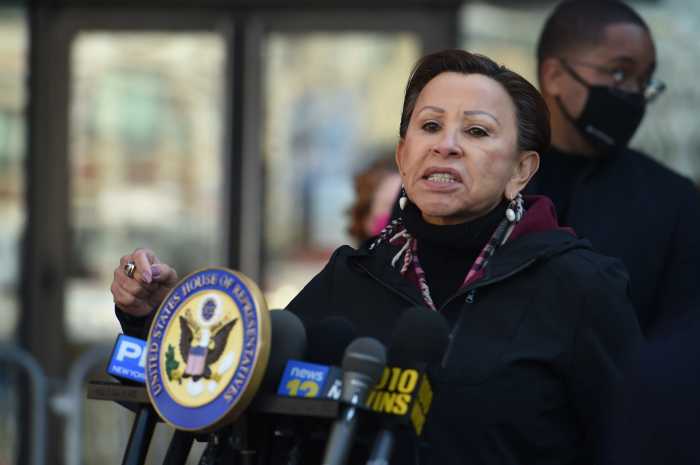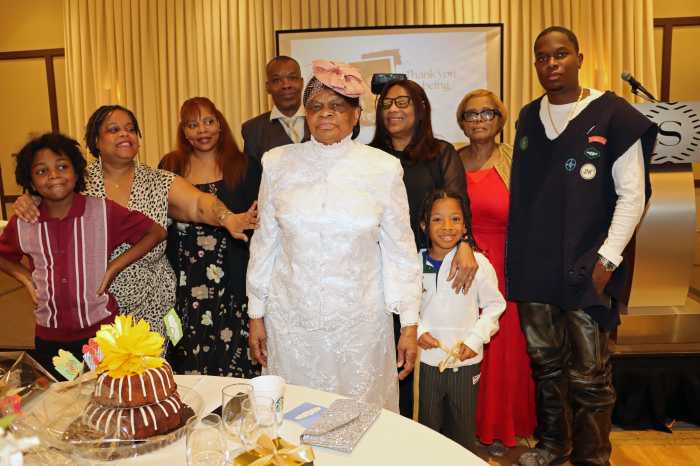These days, the New York theater scene is alive with stories honoring the Black experience, as it should be. And this being the Pride month of June, the boards are also awash in stories celebrating LGBTQ lives.
And yet, to label Mansa Ra’s latest play “…what the end will be” a Black play or a queer play would be a disservice. To be sure, the engrossing comic drama is both of these things, but it is much more. Under the razor-sharp direction of Margot Bordelon, the piece throbs with a keen sense of humanity that will deeply resonate for anyone with a pulse. And if you aren’t stifling back tears during the climactic scene, you may wish to have that pulse checked.
The plot, set in the present day, is as straightforward as the characters are complex. On the surface, Max Kennedy (Emerson Brooks) has it all. A grand, well-appointed house in a posh gated community outside of Atlanta. A Mercedes-Benz G-Class. A high-powered job with prospects for advancement. A loving husband named Charles (Randy Harrison, of “Queer as Folk” fame). A strapping 18-year-old son, Tony (Gerald Caesar) who is a football star at school.
But Max’s relationships are fraught. He clashes not only with Charles and Tony, but also with his 74-year-old father, Bart (Keith Randolph Smith), who is fighting stage four bone cancer and arrives in a wheelchair to live out his remaining days in Max’s home. He’s not even out at work, insisting that Charles is his gym buddy. Max is so conflicted that the bourbon he nips on the sly only partly dulls the pain.
While each performance is strong, this is essentially Smith’s show. The veteran actor lends a jovial warmth and calm dignity to the ailing granddad who, we soon learn, came to terms with being gay later in life. His husband recently died, and he carries his boxer shorts around for comfort. Bart regrets that he failed to act on his same-sex longings sooner, denying his true self for years.
Turns out this pussycat was once a lion and was hardly a nurturing father when Max was growing up. Max reveals that his father booted him out of the house the day he graduated high school, and that he caused the scar over Max’s eye.
In Smith’s capable hands, Bart gets the biggest laughs. When Max, hungry for his dad’s approval, asks what he thinks of the artwork, a wary Bart responds, “It’s very…Afrocentric.” After Max explains the no-racism rule of the house, Bart says, “Black people can’t be racist. I read that on the Facebook.”
Carrying on the family tradition, Tony locks horns with his father. His efforts to hide his own homosexuality fail, and Max disapproves of Tony’s boyfriend, Antoine (Ryan Jamaal Swain), who he calls a “fairy queen.” And although his pronouns are he/him/his, Antoine presents as genderfluid, wearing flashy outfits with a distinct feminine vibe.
Charles is often caught in the middle. “He’s just like his father,” he says of young Tony. “They both would rather fight than actually communicate.” To which Bart responds, “That’s a Black thing. Sometimes we need to duke it out. It’s harmless.”
Max, in denial of his father’s low chances for survival, is committed to caring for him, dispensing a slew of medications at the appropriate intervals. Throughout the proceedings, Bart’s home hospice nurse, Chloe (Tiffany Villarin), makes occasional visits to check on his health status. The proud patriarch lies about his pain levels and is faced with a choice no one should be forced to make.
“…what the end will be” is an astonishing, thoughtful examination of three generations of queer, Black men wrestling with intimacy, identity, and mortality. The characters are richly drawn and relatable, avoiding the usual stereotypes. The play gives a fresh, eloquent spin on a well-worn maxim that Bart declares early on: “Apples don’t fall too far from the tree.”
“…what the end will be” | Roundabout at Laura Pels Theatre | 111 W. 46th St. | Through July 10 | $69-$79; www.roundabouttheatre.org | 90 mins with no intermission

